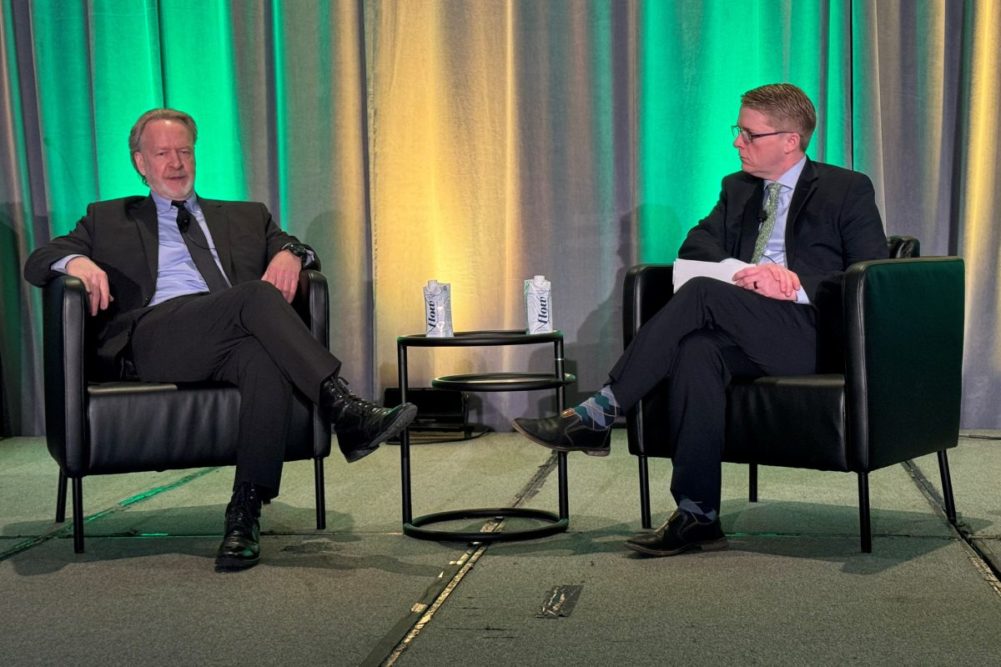WINNIPEG, MANITOBA, CANADA — With the global trading system struggling at a time when more hungry people are relying more on imported food, there is a need for leadership and a change in perspective, said speakers at the Canadian Crops Convention in Winnipeg, Manitoba, Canada.
“At the moment, we’re not in a very good place, and we’re not on a very good trajectory,” said Steve Verheul, principal with GT and Company Executive Advisors, and president of Steve Verheul Consulting Inc. “Trade agreements are not in very great shape and are in danger of becoming increasingly irrelevant. We’re seeing this move away from freer trade toward greater protectionism.”
The biggest problem, Verheul said, is every country is following its own path.
“We’re seeing countries go in their own directions in all kinds of policy areas,” he said. “We’re not seeing any kind of consensus multilaterally to go in a certain direction and we’re not seeing any confidence in any rules to persuade them to go in a certain direction.”
The rise in protectionism can partly be attributed to the fact many countries haven’t successfully addressed the downsides of free trade, Verheul said.
“Free trade brought people out of poverty and created enormous wealth across the world,” he said. “I don’t think countries successfully addressed the downsides. Freer trade is a very blunt instrument.”
Not ensuring some degree of wealth distribution or adapting so that new jobs are created as old ones disappear lessen a country’s buy-in to free trade.
The United States didn’t make those internal adjustments and it is becoming more and more protectionist with little interest in multilateral solutions, Verheul said.
Since the end of World War II, the United States has led the world down a track of trade liberalization and trade rules. Now, most of its large initiatives have focused on US jobs, US consumers and US manufacturing.
“There’s no one else that’s stepping up to lead in that direction,” Verheul said. “If we continue on the same track that we’re on, I don’t think we will be in a good place, unless we can find some leadership in the world.”
As a mid-size country, Canada doesn’t want to be in a world where the largest players are going to set the rules.
“We need the trade rules even more than we need freer trade,” he said.
With the United States neither equipped or prepared to lead, and the European Union dealing with internal issues, there is an opportunity for Canada and other mid-size countries that rely on open access to markets, to take more initiative.
“I think Canada is well positioned to take a much bigger leadership role in the world, particularly when it comes to trade,” Verheul said. “There has to be the political will to do that. We need politicians who want to achieve things and also play a strong role with Canada in the international world.”
In maintaining free trade, Verheul said more attention needs to be paid to the rules-setting side so there is more fairness in the trading system. For example, if Canadian producers have to meet certain climate change objectives, making them less competitive, it’s not fair to allow imports that don’t meet those same objectives.
“I think there is a fundamental unfairness if you are imposing significant costs onto domestic producers but allowing imports to come in without any measures,” he said.
It's likely the era of big negotiations is probably over for the time being. And while smaller agreements have a place, they won’t address the biggest problems.
“We do need to look at trade from a different perspective, and it needs to address today’s issues,” Verheul said.





